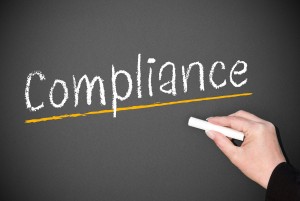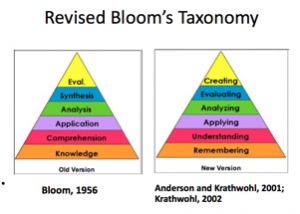Author Archives: admin
What’s In Store For Next Year
Tonight in the #flipclass chat the flash blog topic was: What will you change for nxt year? What worked this year, & what didn’t? How can you turn failure into learning? A rather big topic so here goes.
My changes for next year are a total revamp of my General Chemistry and Forensic Science classes both in scope and sequence. I will be changing up number and types of assignments. I want to move away from compliance assignments to ones that actually mean something to the student and class. Students will have to work independently and in groups to succeed. Key to all of this is planning and creating all summer.
What worked this year was more hands on and video creation by students. I need to have a better process for this though. What didn’t work was the classroom management of one of my classes. They were a unique blend of students that travelled together all day and would feed off of each other. However, I did learn from this and will correct my weaknesses next year.
The biggest failure was one of our barrel implosions. The first time it did not work for one of my classes. In the next class we used a different barrel and it work to a tee. So in the first class we adjusted the variables to match those of the other hour. Finally, we made our second attempt and another failure. Even after the barrel sitting over a week today I took it out and it was still charged and sealed. So the only conclusion we could come to was the it was a reinforced or heavy duty barrel.
So on to next year and more planning.
The Struggle Is Real
Tonight’s #flipclass flash blog topic is Struggle. In my class General Chemistry the struggle for many of my students is real. They are all there in order to get a state endorsed diploma they are required to take and pass a chemistry or physics class. My class is a chemistry class that teaches to the current state standards and over the next few years will incorporate the #NGSS. However, for many of my students science and math have always been a struggle now they are forced to take a class they have no interest in. I do believe that students should have 3 years of science but the third year should be of their choosing not one forced on them. This will not change anytime soon due to standardized testing and the bearing it has on my evaluation and our schools/districts rating. So my struggle is to make the material as interesting and relevant as possible while still meeting the standards. My students struggle will be to will be to concentrate and care about the class and the associated test. Wish us luck.
Scaling Up
Tonight’s #flipclass chat is about innovation in the classroom. On of my innovations if you call it that is to scale up our General Chemistry labs to Mythbuster proportions where applicable. We also video these scale ups. Another thing I have introduced this year is students videoing demonstrations for other students to watch. These will be ready at the end of school. These seem like small things but really engage the students.
It’s Not The Grades…It’s The Assignments
Disclaimer: The views and opinions in the post are mine and not those of the students, faculty, staff, administration, Board of Education or parents of my school district.
The March 30th #flipclass chat discussing in the words of @guster4lovers “Grades and Stuff” got me thinking more about grades. The nice thing about recent chats is the “required” flash blog about the topic. Doing this post started to help knock off the doldrums of winter and the long march to Spring Break. Saying all of this got me to realize a few things, Most of our students are still playing the game of school…the one of compliance and completion. Secondly, grades are not the issue…but the assignments. Whether you grade using scores and associated letters or standards (scale 1-4) it comes down to the assignment. Finally, getting the students to want learn. I say this because in the words of Dan Meyers in his TED talk… “I sell a product to a market that doesn’t want it, but is forced by law to buy it.” I teach a class called General Chemistry. It is a class composed of At Risk students (ELL, SPED, 504, socio-economic, etc.) that are required to take a Chemistry or Physics class to get a state endorsed diploma. These students have been pounded all of their academic life with the compliance, completion and worksheet system.
From: https://residentretention.files.wordpress.com/2013/05/sign.jpg
So what to do about this in my classes? To begin with we have changed the way we do experiments. We still do small scale experiments so students can get the basics of what is going on in the reactions or processes. However, we do a couple of other things when possible. First, we scale up the experiments to “Mythbuster” proportions. (Examples). Second this year the students have to film different reactions. In the demonstrations the students do the reactions but also explain what is happening. These short video demos with be posted later this year. I feel with a little more refining this will be great for the application part of chemistry.
Now comes the hard part. How do I make meaningful assignments that help the students to first get the content knowledge which may or not be present. Secondly, these assignments also have to meet the new requirements of the Next Generation Science Standards and the test that will follow but also include the current state standards until the NGSS is adopted in Michigan. Thirdly, now the state of Michigan is moving to the SAT and all that is involved its requirements. Finally, how do these assignments grab the students attention and hold it.
Frankly, I am concerned about the first and fourth requirements. In this world of ed reform and testing we are sent many messages. The tests don’t matter but they do. If you teach the material and skills the tests will follow but now the tests aren’t testing content. But the colleges want students that have a firm foundation in the content. In the end it becomes just a bunch of radio static. (This rant is for another post)
From: http://www.washingtonpost.com/blogs/answer-sheet/files/2012/11/tests.png
Adding to this dilemma is that my school wants us to move to a new grading scale. This scale would be 80% assessments (remember tests don’t matter) and 20% other. Currently, 45% of my grades are assessments (tests and quizzes), 30% lab, 15% projects, and 10% homework. Some people have told me that I can just move labs over and it will be fine. However, I use labs for learning and not assessments. The homework is basically a compliance grade. (This too is for another post)
Thus, what makes a good assignment or task or assessment? Is the assignment to reenforce and/or assess content. Does it also show that the student can apply the content or concept being taught? Does it also take previous knowledge add it to the new material and help the student show critical thinking about it? I would have to say it all of it at the appropriate times. I want to get away from compliance grades. I would say it would have to also related to Bloom’s Taxonomy and Bloom’s Revised Taxonomy.
From: http://www.designingforlearning.info/images/tip75_clip_image002.png
Finally, any assignment has to meet Michigan High School Content Expectations (for General Chemistry) and where applicable the NGSS. At this point I am not offering any total solution to my dilemma but a starting point for me to think about how I create my assignments to make them more meaningful, applicable and not playing the game of school. I hope to have set ready to share with you next week. Stay tuned.
What Are Grades and What Do They Mean?
Tonight’s #flipclass chat is about Grades and Stuff. But what are grades? Grades in my opinion are a score that tells the student how well they played the game of school. Some are really good at it and some do just enough. Today I had a student reach a C in my class and he said “good enough”. How do we change this mentality when it has in my case been ingrained for the last 11-12 years. And in this era of standardized testing what do grade really show. Are we preparing them to take the “tests” or get ready for the real world? In most cases we are told the tests don’t matter but we have to still prepare them because their scores reflect on the school and district. And this year we found out that the scores on the “test that does count” (at least on school & teacher grades) does count for funding purposes. So what do grades really mean?
I think we need to look at the assignments first. Do they have meaning? In my class much of the material is new so vocabulary knowledge is important. So does a list of terms count as a good assignment? I can give questions on the topics but again it is for learning the basics before we can go on to bigger and more complex problems. So are these good assignments deserving of grades? What grades do I give? Completion grades?
So I feel without good meaningful assignments grades are just part of the game that show how well the student played it or how much they cared about it.
Taking General Chemistry Mythbusters Style
Last year (2013-14) my General Chemistry class was studying states of matter. I decided to extend their thinking by having them make oobleck. They had fun playing in the science and trying to decide if it was a solid or a liquid. Depending on how it’s handled it can be both. After they did the experiment we watched the video below where Adam and Jamie of the Mythbusters tried to walk on water.
After we finished watching the video they all said “Can we do that?” And so after buying a kiddie pool and 150 pounds of cornstarch this is what we ended up with. Enjoy. The students did.
Institutionalized
Testing Something
Testing An IFTTT Recipe
Please ignore this post. I am just testing a new ifttt.com recipe



